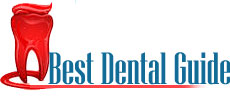Can mouth cancer be prevented or found early?
Our bodies are made up of many small units called cells. These cells have a limited lifespan. The process of forming new cells and dying of older or injured cells is a continuous one. For some reason, this process may get disturbed and cells can start to grow out of control. When this happens, it is called cancer. These cells either invade the surrounding areas or spread to distant parts of the body through the blood or lymph circulation (metastasis).
Mouth cancer, also called oral cancer, is a major health concern in India. It is the most common cancer among men and the 3rd most common cancer among women. Chewing tobacco in its many forms causes nearly 90% of the cases. Some oral cancers begin as leukoplakia a white patch, red patches, or non-healing sores that have existed for more than 14 days. In Indian subcontinent Oral submucous fibrosis is very common. This condition is characterized by limited opening of mouth and burning sensation on eating of spicy food. This is a progressive lesion in which the opening of the mouth becomes progressively limited, and later on even normal eating becomes difficult. It occurs almost exclusively in India and Indian communities living abroad.
Causes of Mouth Cancer
1. Tobacco
Smoking and other tobacco use are associated with about 75 percent of oral cancer cases, caused by irritation of the mucous membranes of the mouth from smoke and heat of cigarettes, cigars, and pipes. Tobacco contains over 60 known carcinogens, and the combustion of it, and by products from this process, is the primary mode of involvement. Use of chewing tobacco or snuff causes irritation from direct contact with the mucous membranes.
2. Alcohol
Use of alcohol and other toxic liquids is another high-risk activity associated with oral cancer. There is known to be a very strong synergistic effect on oral cancer risk when a person is both a heavy smoker and drinker.
3. Human papillomavirus
Infection with human papillomavirus (HPV), particularly type 16, is a known risk factor and independent causative factor for oral cancer. HPV16 (along with HPV18) is the same virus responsible for the vast majority of all cervical cancers and is the most common sexually transmitted infection in the US. Oral cancer in this group tends to favor the tonsil and tonsillar pillars, base of the tongue, and the oropharynx. Recent data suggest that individuals that come to the disease from this particular etiology have a significant survival advantage, as the disease responds better to radiation treatments than tobacco etiology disease.
4. Ultraviolet light
More than 30% of patients with cancers of the lip have outdoor occupations associated with prolonged exposure to sunlight.
5. Irritation
Chronic (long-term) irritation to the lining of the mouth caused by poorly fitting dentures has been suggested as a risk factor for oral cancer. But multiple research studies have shown no difference between denture wearers and non-denture wearers in the occurrence of oral cancer. As poorly fitting dentures can tend to trap proven causative agents of oral cancer beneath them, such as alcohol and tobacco particulates, denture wearers should have their dentures evaluated by a dentist at least every 5 years for optimum fit. All denture wearers should remove their dentures at night and clean and rinse them thoroughly every day.
6. Vitamin deficiency
 Vitamin A deficiency is associated with an increased risk of developing cancer of the oral cavity and oropharynx.
Vitamin A deficiency is associated with an increased risk of developing cancer of the oral cavity and oropharynx.7. Hematopoietic stem cell transplantation
Patients after hematopoietic stem cell transplantation (HSCT) are at a higher risk for oral squamous cell carcinoma. Post-HSCT oral cancer may have more aggressive behavior with poorer prognosis, when compared to oral cancer in non-HSCT patients. This effect is supposed to be owing to the continuous lifelong immune suppression and chronic oral graft-versus-host disease.
Mouth cancer commonly starts as one of the following:
- An ulcer or wound in the mouth or on the tongue that does not go away
- A swelling over the cheek and gum (which may be painful or painless)
- Diiculty opening the mouth completely and swelling in the neck
- Persistent sore throat
- Difficulty in swallowing or moving the tongue
- Slurred speech
- Numbness of the tongue or other area of the mouth
- A lump or mass in the neck
- Weight loss
- Some patients may go to the dentist with sudden loosening of teeth or pain in the jaw.
Can mouth cancer be prevented or found early?
Mouth cancer is often (but not always) preceded by some changes in the mouth. These changes serve as warning signs for cancer. Some patients may have white (leukoplakia) or red (erythroplakia) patches in the mouth. These patches bleed on removal and can be painless or painful. Stopping the use of tobacco and alcohol and eating a healthy, nutritious diet may help prevent progression of these patches to a cancer.
 Quitting tobacco is an important step in the prevention of mouth cancers. Chewing betel nut and leaves (paan with supari) has also been found to increase the risk of cancer and should be stopped. Looking at your mouth every day can also find early signs and help in diagnosing cancer at an early stage.
Quitting tobacco is an important step in the prevention of mouth cancers. Chewing betel nut and leaves (paan with supari) has also been found to increase the risk of cancer and should be stopped. Looking at your mouth every day can also find early signs and help in diagnosing cancer at an early stage.
Regular dental checkups, that include an examination of the entire mouth, are important in the early detection of oral and oropharyngeal cancers and precancerous conditions.











Leave a Comment